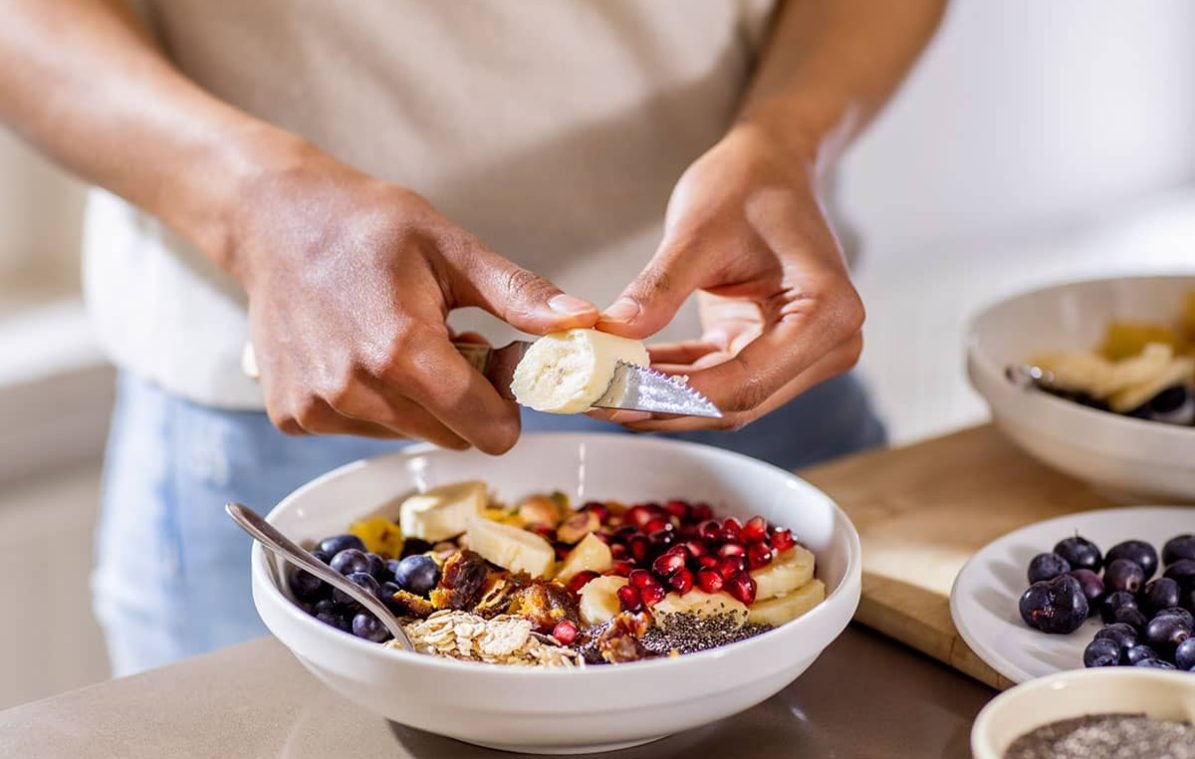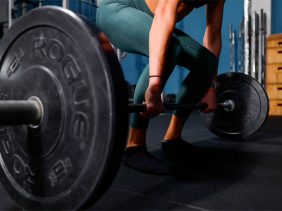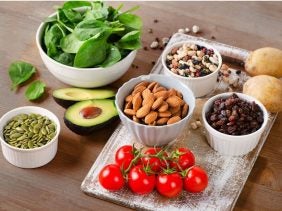If You Feel Tired all the Time, Then Try Avoiding These 5 Foods
 © foodspring
© foodspring
If you feel tired all the time and never have enough energy, no matter how many hours you sleep or how much caffeine you drink, then it’s time to take a look at your diet. Science shows that fatigue isn’t just related to sleep; the foods you eat on a daily basis also play a significant role in your energy levels. We show you five foods that can really slow you down – and healthier alternatives that will get you out of bed brimming with energy every morning. You won’t need that afternoon coffee after all!
Related: If you’re not just tired all the time, but sluggish and demotivated as well, we have 13 helpful tips to help you rediscover your mojo.
#1 Junk Food
Burgers and crispy fries, pizza with extra cheese, chicken wings… sometimes high-fat classics are exactly what make a night out with friends or get you in the mood for a binge-watching session. And as long as these sessions are exceptions, that’s totally okay. But if your oven is gathering dust and you’re continually eating junk food instead of freshly cooked food, you won’t just find your waistband getting a bit tight. According to a study by the University of Adelaide in Australia, you’ll also be at increasing risk of poor-quality sleep and sluggishness – which in turn feeds your cravings for fatty foods.
Breaking out of this cycle is hard once you’re caught in it and strict diets often don’t help. Try looking for healthier options instead; if you’re craving a burger, make it yourself rather than ordering from the nearest fast food restaurant and you’ll have far more control over the ingredients used. Cut back on fatty sauces, replace burger patties with turkey steak and white burger buns with whole wheat buns, or even bake them yourself using our protein bread mix. Plus, if you find yourself using lots of fresh ingredients like lettuce, onions, tomatoes, and cucumber, it’s easier to skip the cheese. If pizza is your thing, use our Protein Pizza or make dough using whole wheat flour and top with lots of veggies.
#2 Pasta, Bread and Pastries
Foods made using white flour are popular, they go with everything, and we find it hard to say no to them. As much as we love a serving of pasta in the evening or fresh bread and pastries for breakfast, however, these products have a high glycemic index (GI). The GI is an indicator of how much the carbohydrate-containing food causes blood sugar levels to rise. Foods with a high GI can create a blood sugar spike and subsequent crash that can make you feel quite drowsy.
Short-chain (simple) carbohydrates provide a quick energy boost because your body can process them quickly, but they also release a lot of insulin to regulate the rapid rise in blood sugar levels. The insulin hormone helps transport the sugar in your blood into your body’s cells. The more insulin is released, the faster your blood sugar level drops again, and a drastic drop can make you feel tired in turn. Unfortunately, donuts, white bread, and breakfast pastries are prime examples of how this process works. That’s not a reason to entirely avoid them, however. Go for whole grains that have a lower GI and will cause your blood sugar to rise less quickly. This in turn means it will fall slower, so you can avoid feeling tired as a result.
#3 Chocolate and Candy
Milk chocolate and other sugary treats behave in a similar way to white flour products, but at least soul foods like these make you happy, right? According to the following study, that’s just another rumor unfortunately. Researchers from the Universities of Warwick, Berlin, and Lancaster believe that, contrary to popular belief, sugar doesn’t improve your mood and may even make you tired. That’s not great news but, as you know, we’re not fans of complete abstinence. To continue to sweeten your day at university or work without feeling the dreaded afternoon slump, enjoy these healthier homemade snacks.
#4 Alcohol
We’re all familiar with having one glass too many in the evening, and feeling exhausted the following day. Even if you drink alcohol during the day (at a champagne brunch on Sunday morning, for example), it’s been proven that this will really slow you down and make you tired. Alcohol consumption also lowers your inhibitions and you’re more likely to treat yourself to a large portion of fries after a party instead of choosing the healthy burger option we suggested in #1.
Of course, not every glass of alcohol goes hand in hand with a long night of partying. What about those nights on the sofa with a glass of wine that are supposed to help you feel sleepy? Sadly, that’s not how it works. A glass of red wine can indeed make your eyelids heavy, mean you look forward to bed, and help you fall asleep faster, but don’t expect to enjoy restful sleep as a result. You might even wake up in the middle of the night and be unable to fall asleep again. Find out what will really help you fall asleep.
#5 Ready Meals
Microwaveable ready meals and the like are highly processed and contain lots of additives, sugar, salt and fat. These include foods such as ready-made products from the supermarket freezer section, sausage and meat products, and instant soups. Often, they appear to make our lives easier, especially when we have lots to do and little time to cook, but not if you dig a little deeper. A recent study shows that eating ready meals can have a negative impact on cognitive ability when your intake of these products accounts for more than 20% of your daily calorie intake. So if you often feel unable to concentrate, try replacing your supermarket freezer lunch with something homemade. And don’t use being short on time as an excuse, because meal prep can be a lot easier than you think.
More interesting articles from foodspring:
Sources for this article
We at foodspring use only high-quality sources, including peer-reviewed studies, to support the facts within our articles. Read our editorial policy to learn more about how we fact-check and keep our content accurate, reliable, and trustworthy.

































